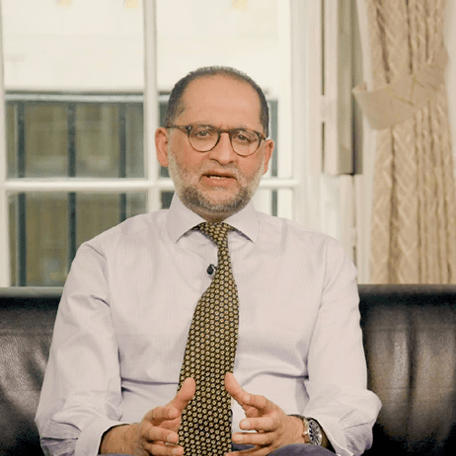One trope that seems to be circulating at a rate of knots is the view that ‘the Fed will keep raising rates until something breaks’. It is usually followed by views on what this will be.
We wonder whether this is a case of not being able to see something right in front of you. The Fed has already broken something, triggering a spectacular bust in speculative assets. It’s just that, as with the dotcom crash from 2000-02, this bust has had limited spillover to the banking system or the real economy.
The historic surge in M2 (a measure of US money supply) in 2020-21 drove up prices of speculative assets to stratospheric levels. At the forefront of this was crypto. The crypto market cap surged from $0.2 trillion at the start of 2020 to $2.9 trillion in November 2021. It has since fallen 64% to $0.8 trillion. This would seem to classify as ‘breaking something’. However, the wash over to the ‘real’ financial system has been minimal as the linkages between the crypto and mainstream banking systems are limited.
In stock markets, more speculative companies have been crushed. As an example, Ark Innovation ETF is down 75% from its February 2021 peak. Loss-making concept companies have been taken out to the woodshed. For example, Carvana, Oatly and Beyond Meat, which have all been making consistent losses at an EBITDA level, let alone net income level, have fallen between 89% and 97% since June 2021. Their combined peak market cap was $44 billion, whereas it is now only $3 billion. In the bond market, extreme duration has been annihilated. Austria’s 0% 2120 bond, issued at the height of the pandemic, has fallen by 91% from its December 2020 highs and is now trading at €9; par is €100.
Our take on this is that it’s good news for markets. The most egregiously mispriced assets have corrected and fevered speculation has been replaced by an altogether more sober assessment of asset valuations. This is a decent starting point for forward returns. It is also one of the reasons why we believe the risk reward profile is looking more attractive for long than short positions. Clearly, markets are not out of the woods yet. The lagged effect of monetary tightening will really start to kick in in 2023, which will likely trigger what must be one of the most well flagged economic slowdowns in history. Will it lead to recession? Maybe. Will the recession be deep? Probably not.
Critical to this is that second order effects in the financial system seem unlikely. In response to what was very nearly a complete collapse of the financial system in 2008-09, policymakers put in place significant structural reforms of the banking system. As a result, the Western banking system is now in the best shape for decades, in terms of both capital and liquidity. The Western banks are well placed to absorb significant shocks and still keep loans flowing to the real economy. As in 2000-02, it seems likely that what goes on in markets will largely stay in markets.
The most likely pinch point is the shadow banking system of alternative lenders, but generally risk in these areas is well diversified and only a handful of players could be regarded as of systemic risk. Almost by definition, accidents tend to happen when no one is looking out for them, as opposed to when everyone is scouring for potential risks.
In terms of inflationary pressures, the deceleration in US M2 continues and it is now only growing at 1.3% YoY, the slowest since 1995; this is almost certainly going to put downward pressure on US inflation. US core CPI (Consumer Price Index) only rose 0.3% month on month (3.6% annualised) in October, which was below consensus forecasts of 0.6% (7.2% annualised). US Core PPI was flat month on month in October for the first time since 2002. In Europe, the recent Markit PMI report is worth a read; it noted a cooling of price pressures, most notably in the manufacturing sector. In November, headline CPI in the Eurozone actually fell by -0.1%, helped by falling energy prices.
One development in Taiwan did not seem to get the coverage it deserved, which was the strong performance of the opposition party, the Kuomintang (KMT), in Taiwan’s local elections. Chiang Kai Shek’s grandson, Chiang Wan-an, won the race to be mayor of Taipei and he is a member of the KMT. The KMT are historically seen as pro-China ‘doves’. The governing Democratic Progressive Party (DPP) only won five of 22 municipalities. In total, 374 KMT candidates won office compared to 277 candidates from the ruling DPP. As a result, Taiwan’s current President Tsai Ing-wen stood down as Chair of the DPP.
So what? The rise of the DPP and its focus on Taiwanese nationalism and identity has irked Beijing and led to more testy relations. You could argue that the dramatic escalation in military pressure from Beijing following the visit of US House Speaker Nancy Pelosi, coupled with vivid images from the war in Ukraine, may have started to tilt public opinion in Taiwan towards a more cooperative relationship with Beijing as reflected in increased support for the KMT at the local elections.
Currently, there is a significant geopolitical discount on Chinese and Hong Kong shares related to the fact that if a war kicked off in the Taiwan strait, there is a risk that Western holders of these securities could face a 100% write off. If the resolution of the current tensions is instead via a slow drift of Taiwan in a more pro-China direction, this would likely significantly reduce the chance of China launching a highly risky military invasion to retake Taiwan by force. The next presidential election in Taiwan is in 2024. On the margin, these developments seem to be quite positive.
On 11 November, China announced 20 new guidelines intended to start to ease its Covid Zero policy. They included reducing isolation periods, not identifying close contacts of close contacts of infected persons, removing mass testing in some areas, cutting quarantine times for travellers and promoting vaccine use among the elderly. This was followed up on 29 November by a meeting of the State Council, which included a detailed plan for boosting the vaccination of the elderly and notably did not include any mention of ‘dynamic covid zero’.
On the property side, on 13 November, Chinese financial regulators released a 16-point plan to boost the market, including measures to address developers’ liquidity issues by allowing banks to roll, extend or swap debt, and reducing down payment requirements for home buyers. Banks were also encouraged to extend $140 billion of financing to developers in the fourth quarter of 2022 to ensure they are able to complete projects.
This reinforces our view that after consolidating power at the recent Party Congress, Xi Jinping is likely to focus on taking measures to boost the economy. Chinese M2* growth has been accelerating since mid-2021 and is currently running at close to six-year highs of 12%.
An improving Chinese economy and reducing geopolitical risk would obviously be positive for Chinese equities; it would also likely put downward pressure on the dollar, which would in turn likely be positive for global risk appetite.
*M2 is a nation’s measure of the total money supply (including cash, checking deposits and non-cash assets) that can easily be converted into cash.
KEY RISKS
Past performance is not a guide to future performance. The value of an investment and the income generated from it can fall as well as rise and is not guaranteed. You may get back less than you originally invested. The issue of units/shares in Liontrust Funds may be subject to an initial charge, which will have an impact on the realisable value of the investment, particularly in the short term. Investments should always be considered as long term.
Investment in the Fund involves foreign currencies and may be subject to fluctuations in value due to movements in exchange rates. The Fund may invest in derivatives. The use of derivatives may create leverage or gearing. A relatively small movement in the value of a derivative's underlying investment may have a larger impact, positive or negative, on the value of a fund than if the underlying investment was held instead.
DISCLAIMER
This is a marketing communication. Before making an investment, you should read the relevant Prospectus and the Key Investor Information Document (KIID), which provide full product details including investment charges and risks. These documents can be obtained, free of charge, from www.liontrust.co.uk or direct from Liontrust. Always research your own investments and if you are not a professional investor please consult a regulated financial adviser regarding the suitability of such an investment for you and your personal circumstances.
This should not be construed as advice for investment in any product or security mentioned, an offer to buy or sell units/shares of Funds mentioned, or a solicitation to purchase securities in any company or investment product. Examples of stocks are provided for general information only to demonstrate our investment philosophy. The investment being promoted is for units in a fund, not directly in the underlying assets. It contains information and analysis that is believed to be accurate at the time of publication, but is subject to change without notice. Whilst care has been taken in compiling the content of this document, no representation or warranty, express or implied, is made by Liontrust as to its accuracy or completeness, including for external sources (which may have been used) which have not been verified. It should not be copied, forwarded, reproduced, divulged or otherwise distributed in any form whether by way of fax, email, oral or otherwise, in whole or in part without the express and prior written consent of Liontrust.







